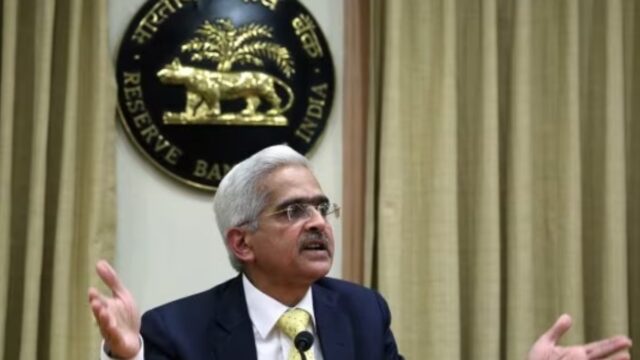The Reserve Bank of India (RBI) on Wednesday issued a circular for lenders about investments in alternative investment funds (AIFs). The central bank has given directions to the banks to disclose the extent of their investments in alternative investment funds.
As per the latest directions, RBI has said banks need to only set aside provisions to the extent of their investment in the AIF scheme, which is further invested by the AIF in the debtor company, and not on the lender’s entire investment in the AIF scheme.
“With a view to ensuring uniformity in implementation among the REs, it is advised [that] downstream investments shall exclude investments in equity shares of the debtor company of the regulated entity (RE), but shall include all other investments, including investment in hybrid instruments,” the circular stated.
The RBI has issued the instructions in exercise of the powers conferred by Sections 21 and 35A of the Banking Regulation Act, 1949 read with Section 56 of the Act ibid; Chapter IIIB of the Reserve Bank of India Act, 1934 and Sections 30A, 32 and 33 of the National Housing Bank Act, 1987.
In December 2023, RBI had restricted banks and NBFCs from investing in AIFs, which have downstream investments in debtor companies. If banks or NBFCs had such investments in AIFs, they were given 30 days to liquidate their holdings or make 100% provisions against them.
The Wednesday’s circular further said:
> Provisioning in terms of paragraph 2 (iii) of the Circular shall be required only to the extent of investment by the RE in the AIF scheme which is further
invested by the AIF in the debtor company, and not on the entire investment of the RE in the AIF scheme.
> Paragraph 3 of the Circular shall only be applicable in cases where the AIF does not have any downstream investment in a debtor company of the RE.
> If the RE has investment in subordinated units of an AIF scheme, which also has downstream exposure to the debtor company, then the RE shall be required to comply with paragraph 2 of the Circular.
> Investments by REs in AIFs through intermediaries such as fund of funds or mutual funds are not included in the scope of the Circular.
These instructions are applicable to all commercial banks (including Small Finance Banks, Local Area Banks and Regional Rural Banks), all Primary (Urban) Co-operative Banks/State Co-operative Banks/ Central Co-operative Banks, all All-India Financial Institutions, and all Non-Banking Financial Companies (including Housing Finance Companies).
In December 2023, RBI had prohibited the REs from making investment in units of AIFs having downstream investments either directly or indirectly in a ‘debtor company’ of the REs.
The term ‘debtor company’ has been defined to include any company to which the RE currently has or previously had a loan or investment exposure anytime during the preceding 12 months.
In response to the RBI’s regulatory directives, Piramal Enterprises Ltd (PEL) and IIFL Finance told the stock exchanges that they have initiated the process of making provisions.
Piramal Enterprises, accompanied by its subsidiaries, announced a comprehensive AIF exposure totalling Rs 1,737 crore in compliance with the RBI’s AIF norms.
IIFL Finance disclosed a combined investment of Rs 21.37 crore in IIFL Fintech Fund, along with an outstanding debt exposure of Rs 3.28 crore linked to one of the fund’s downstream investments.
The total value of other Alternative Investment Fund (AIF) investments was around Rs 909.81 crore, excluding any downstream investments or exposure acquired in the preceding 12 months.




